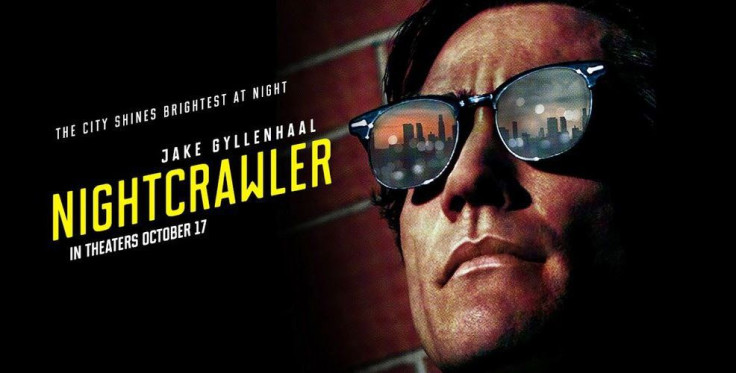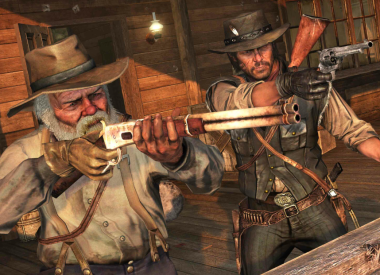“Nightcrawler” opens with Lou Bloom, played by Jake Gyllenhaal at his absolute best, stealing scrap metal—tearing down fences and nabbing manhole covers—while looking for the next leg up in his career. After a chance encounter with a hustlin’ car crash cameraman (a “nightcrawler” played by Bill Paxton) Lou buys his own camera and inserts himself into the competitive field of human misery. As a media satire “Nightcrawler” doesn’t have much to say that “Gone Girl” didn’t put better, but that doesn’t keep “Nightcrawler” from being one of the best movies of 2014. But while “Nightcrawler” does manage to land some blows against the racial and class biases indulged by media companies flattering our prejudices, the heart of “Nightcrawler” is elsewhere. The movie prefers to revel most in specifics, treating us to a creep for the ages in Louis Bloom.
'Nightcrawler' Movie Trailer
Until a late reveal, Gyllenhaal’s Bloom is all exterior, a stupid man so perfectly driven that his every thought motivates immediate action. He succeeds through pure literal bluntness, turning the most dull airport business book platitudes into engines that steer his every move. Like John Travolta’s Terl in “Battlefield Earth” (“Leverage!” the goon laughs to himself, roll credits), every encounter is a matter of who has bargaining power and who doesn’t.
“Nightcrawler” is a portrait of a callousness so inhuman that the word no longer seems to apply. Can a flash flood be callous? It won’t be very far into “Nightcrawler” before you think to yourself that Louis Bloom is a sociopath. At first, as this “nightcrawler” prowls Los Angeles overnight in search of gruesome video footage, it seems like a fitting label. But settling on “sociopath” reduces more than it enlightens, like an anatomist cutting open a frog and satisfying herself with the label “innards” for everything that spills out.
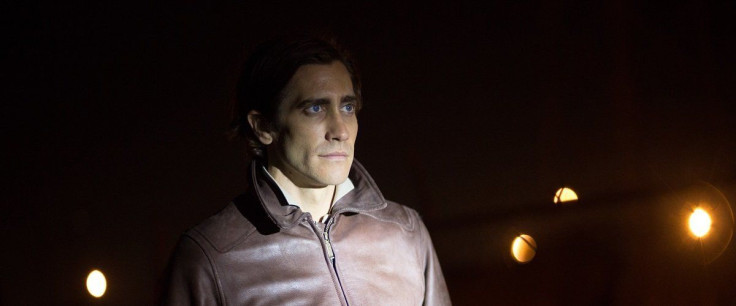
Jake Gyllenhaal creates a character I’ve never seen before, even as “Nightcrawler” half-succeeds in convincing me that similar people are running the world at this very moment. His performance is one of those twisted shapes that you can’t imagine the actor untwisting, like the hunched back of Joaquin Phoenix in “The Master.” Will it ever be possible for him to loosen those sinews or to push back those bulging peepers? Can that much hair grease ever really be washed away? Lou Bloom is one of those cinematic man-things with an independent reality, one that doesn’t seem to allow for the possibility of an actor simply stepping out of character.
While Gyllenhaal’s greasy, throbbing, frog-eyed lead is the main attraction in “Nightcrawler,” the movie has other virtues, beginning with the beautiful L.A. night photography of Robert Elswit. "Nightcrawler" captures the modern L.A. sensations without lapsing into the techno be-bopping neon of “Drive.” This looks like the L.A. the rest of the country sees on the news, but every so often “Nightcrawler” pauses to show that the moon can still glitter in the palm tree tops.
Also worth noting is the “Nightcrawler” score by James Newton Howard, maybe the most subjective in recent memory. The music tracks the emotional arc of Louis Bloom, not caring at all about the viewers' experience of a scene. I first noticed it as Lou delivers a creepy and confrontational torrent of business wisdom to station manager Nina Romina (Rene Russo), then sits himself behind the anchor desk, surveying the kingdom he can already see in his future. The music is triumphant, backing Lou’s interpretation of how well events are going and ignoring the goosebumps popping on the viewer’s arms.
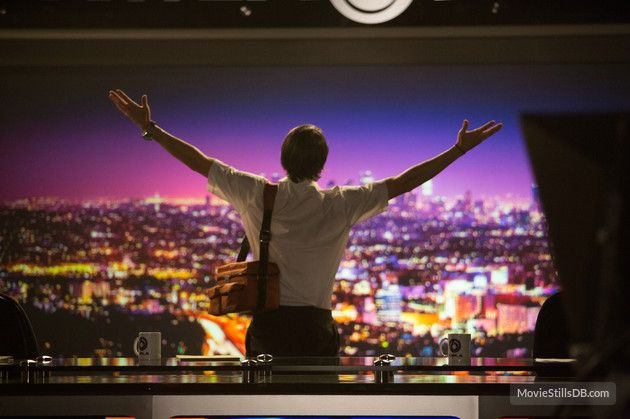
Remember that late reveal I mentioned? I’ll keep it vague for the spoiler-phobes. Rick, Lou’s only employee, tells Lou to his face that his vision of the world is twisted. “I’m trying to help you,” Rick insists, looking for something human in Lou, hoping to push Lou into seeing his own inhumanity. But no sign of recognition flickers across Lou’s wide, wet, unblinking eyeballs until Lou speaks. Then, just for a moment, Jake Gyllenhaal’s Lou Bloom gives voice to his inward eye, the one that sees just what he is and what he does. But he’s not looking for Rick’s redemption. Instead Lou pounces, unleashing a chain of events so certain, so irrevocable, that he already has his camera angles picked out in advance, standing in just the right spot to capture everything he’s unleashed. Lou becomes an even more frightening character than before, a man so capable of burying any semblance of a thought process that his actions have all the appearance of a reflex, like a shark’s black eyes rolling over white.
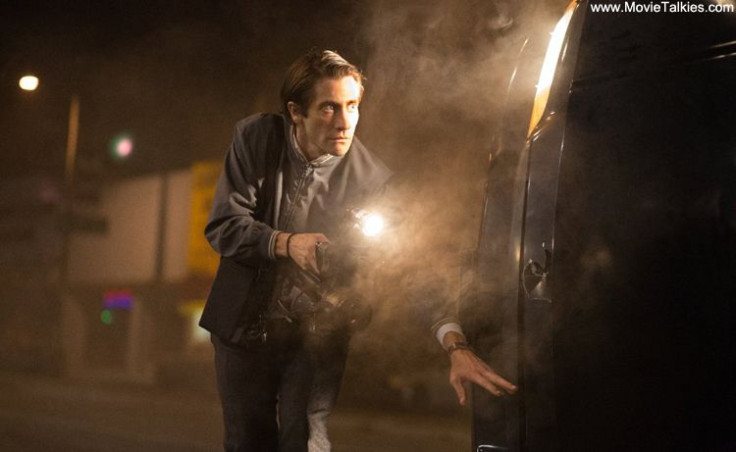
And that’s why it’s not good enough to call Lou Bloom a sociopath and leave it at that. Because in “Nightcrawler” even a clockwork monster has layers to uncover. And while any larger critique of the media news is out of reach for “Nightcrawler,” it fulfills a stranger agenda. “Nightcrawler” may not be able to tell you what makes Lou Bloom tick, nor can “Nightcrawler” provide a clear lesson much more elaborate than “sociopaths always win,” but it sure is fun to watch.

